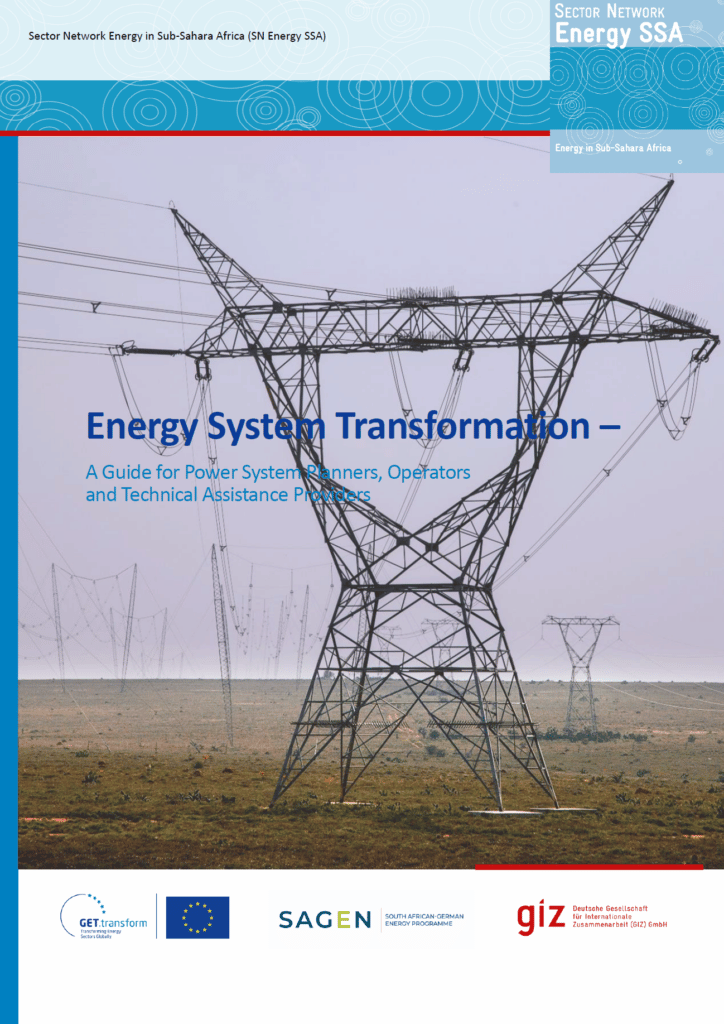In a new report, GIZ presents an analytical framework to guide energy-system planners, operators, and technical assistance providers throughout their collaborative journey of energy system transformation. The framework describes a path from a fossil-fuelled to a decarbonised energy-system in five phases, and suggests technical assistance approaches to discuss and prioritise different measures to support this transition.
The report is intended to assist and guide the scoping, planning and implementation of core priority, impact-orientated and partner-driven technical assistance, as promoted by GIZ projects organised under the Sector Network Energy in Sub-Sahara Africa (SN Energy SSA). It has been prepared under the guidance of the Working Group on Grid-Connected Renewable Energy, GET.transform, and with input from the South African-German Energy Programme (SAGEN).
As electricity-generation represents the largest source of energy-related greenhouse gas emissions, the power sector is of vital significance to realising international climate goals. The transport, heat, and industrial sectors will need to be decarbonised, and require the transition of relevant industrial processes from fossil fuels to renewable electricity, as well as green hydrogen.
The variable nature of renewable energy sources, such as solar photovoltaics (PV) or wind, calls for transformational changes in the technical planning and operation of power-systems. The need for change often goes hand-in-hand with a number of energy security-related concerns, particularly early on in renewable energy deployment.
Depending on the individual country context, the guide suggests short, medium, and long-term measures to update planning and operating procedures of the power system which can be discussed with project partners to derive recommendations for further technical assistance.



